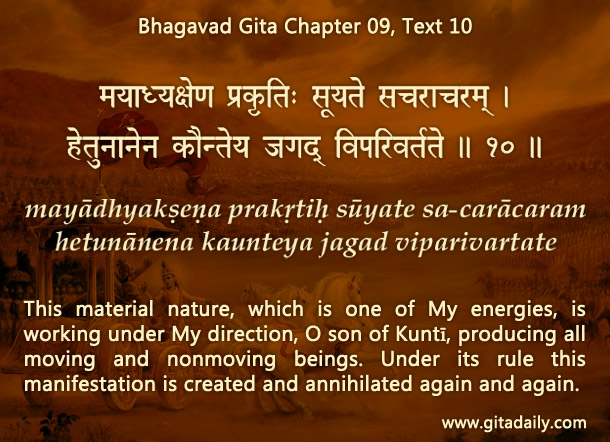Newton’s seeing the fruit falling was accidental. He could well have been elsewhere at that time or the fruit might well have fallen at some other time.
Significantly, that accidental event turned out to be providential – which he discovered by being devotional. Whether or not Newton had a specifically devotional vision to life, he did have a sense of the hand of the divine in this world. That’s why when the apple fell, he asked the question, “What made this fruit fall?”
Scientific progress has hinged on the answer to this question, but spiritual insight awaits those who question the question itself. What made him ask the question in the first place? A devotional worldview. The fundamentals of that worldview are: in the natural world, things don’t happen by chance, nature works according to an intelligent order, and nature’s order can be discerned through rational enquiry. Boosted by this devotional vision, he came up with scientific discoveries about the workings of nature. He saw his discoveries as insights into the mind of God, into how the supreme had fashioned the world to work according to orderly principles. Pertinently, he declared, “O God, I think Thy thoughts after Thee.”
What applies to insights about nature applies to insights about life too. If we live with a spirit of openness and enquiry, we can discern the providential in the accidental. Such a learning attitude towards life is fostered by understanding the Bhagavad-gita, specifically its declaration that material nature works under divine supervision (09.10).
What we discover may not be as consequential as was Newton’s discovery of gravity. Still, it can be consequential for us. It can enrich us with wisdom and devotion, thereby taking us through the accidental towards the providential and ultimately towards the Lord of the providential.
To know more about this verse, please click on the image
Explanation of article:
Podcast:


with deep devotion accident may be turned just into an eraser to the body